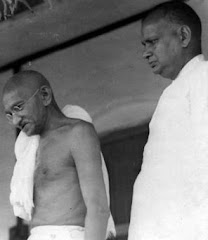On November 18, 19 and 23, MPTers responded to requests for accompaniment for pruning olive trees. Farmers in Quarawat Bani Hassan and Kufr Qaddum felt the need to have internationals present when they went to their groves in case they encountered settlers from the nearby illegal settlements of Kiryat Natafim and Qadumim and/or soldiers of the Israeli Occupation Army.
Olive groves needing pruning and plowing
Both Palestinian villages, Quarawat Bani Hassan and Kufr Qaddum, have similar populations, approximately 3,000. Both villages have suffered from the establishment of the nearby illegal settlements of Qadumin, established in 1975, and Kuryat Natafim, established in 1983, respectively. Both settlements confiscated hundreds of acres of land from the villages and a further large percentage of land is used as a protective barrier area around the settlement and therefore is unusable by the villagers.
The villagers simply are unable to plow their land or graze their animals or harvest their olives in many areas because of the violence and intimidation of the armed settlers should the villagers come too close to what the settlers claim is their land -- even though it’s private Palestinian land. Indeed, many villagers are scared to venture out of their village for fear of settler violence. But the threat of violence also comes from soldiers who patrol the roads, driving in and out of the settlements, and who have a close working relationship with the settlers.
In addition to losing their land, thousands of olive trees were uprooted to make room for the settlements, imposing great economic hardship on the farmers whose income is largely dependent upon olive production. In addition, the villages have had their wells poisoned by settlers as well as their springs polluted by the sewage and industrial run-off from the settlements. Their sheep and goats have been killed or stolen and arson has destroyed their crops and olive trees.
As recently as mid-October, fire set by the settlers destroyed close to 7 acres of land in Bani Hassan. Fire brigades were denied direct access to the burning fields via a settlement road, thus necessitating their approaching from the other side of the village, causing a 3-4 hour delay in extinguishing the fire which, of course, resulted in more extensive scorching of earth and trees.
Burnt olive trees (reddish brown in picture) in Kafr Qaddum
A similar situation occurred about the same time in Kafr Qaddum: about 50 trees burned in a fire that lasted all night because the settlers would not allow any fire truck to enter the area
When MPTers accompanied the farmer in Qarawat Bani Hassan, the farmer asked that they not take photographs. It would be easy to identify the grove from the perspective of the settlements in the pictures and the farmer feared retaliation. For two days, MPTers stayed with the farmer, keeping watch for soldiers and settlers while helping with the simple pruning of his olive trees, while he and a hired man did the more extreme pruning. Both days passed without incident.
On the 23rd, because the MPTers arrived before the farmer at the olive grove they thought was his, they sat on a boulder beneath an olive tree. They had noticed a settler on the hill watching their hike to the area. Soon, three young male settlers approached them, asking who they were, what they were doing, and why they were on “their” land, although the grove was in a valley, next to the road away from the settlement, clearly not settler land. After the MPTers nonchalantly responded that it was a beautiful day for a hike, and surely there was no problem just sitting in the shade for a rest, the settlers left -- to get reinforcements, the MPTers were sure. Not wanting to endanger the possibility of the Palestinian farmer being able to plow his field, the MPTers slowly walked across the road to the grove they realized was their destination. Meanwhile, on the hill a significant number of settlers had gathered.
 Settlers gathering on the hill to watch the MPTers
Settlers gathering on the hill to watch the MPTers
It was evident that this farmer had not pruned many of his trees for a couple of years. The proximity of the settlement makes his olives groves an easy target.

Settlement in close proximity to the olive grove
While some trees had minimal sucker growth, the majority had suckers of more than a year’s growth growing from the base of the trees, indicating perhaps that the farmer’s field work last year had been interrupted. Hatchets had to be wielded to cut the growth.
 MPTer wielding a hatchet to cut the suckers from the base of the tree
MPTer wielding a hatchet to cut the suckers from the base of the tree
Moreover, the trees had not been shaped and there were several dead almond trees that had to be cut down.
 Palestinian farmer cutting down a dead almond tree
Palestinian farmer cutting down a dead almond tree
Again, MPTers, while keeping watch for settlers and soldiers, helped the farmer and his brother prune, using clippers and axes to cut the unwanted growth from the bases of the trees and along their trunks. They also helped load the wagon with the wood from the fruit trees the men cut down.

MPTer helps load wagon with wood from felled tree
Again, fortunately, the work progressed without incident.
 The farmer returns home after a day of hard work and without harassment from either settlers or soldiers. (Note the burnt olive trees on the terraced hillside)
The farmer returns home after a day of hard work and without harassment from either settlers or soldiers. (Note the burnt olive trees on the terraced hillside)


 MPTer wielding a hatchet to cut the suckers from the base of the tree
MPTer wielding a hatchet to cut the suckers from the base of the tree Palestinian farmer cutting down a dead almond tree
Palestinian farmer cutting down a dead almond tree 
 The farmer returns home after a day of hard work and without harassment from either settlers or soldiers. (Note the burnt olive trees on the terraced hillside)
The farmer returns home after a day of hard work and without harassment from either settlers or soldiers. (Note the burnt olive trees on the terraced hillside)








No comments:
Post a Comment